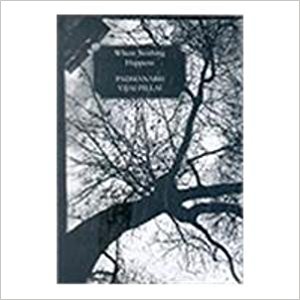Vijai Pillai, the author of this posthu-mously published work, was terminally ill with cancer when he wrote to a friend: ‘Death for me is a great theme, worthy of a greater subject than my pains, and I wish to approach it with my mind and spirit in full flow in open amazement that my life, like any life, ever was, and is now going.
It is as a tribute to that free-flowing spirit of my friend which is voiced in Where Nothing Happens that I write this. The book is cast in the form of a long letter to his late mother, written when he was living alone in Delhi in the late nineties, some years after his mother’s death. He had not meant to publish it, but he circulated it among a few close friends. It has been brought out posthumously in this beautiful edition by the efforts of a friend who is its editor. The author refers to the narrative as ‘the staging posts of [his] journey within [him]self, the journey all of us have to make to find out something about where we are’ (p. 61).
This journey takes him into the heart of the human condition with its perpetual restless quest for a wholeness it can never find, a certainty it can never rest on. In his case this human unease is compounded by a feeling that has weighed on his spirit from an early age, that of ‘the world as an obduracy, an intrusive resistance that I am forced to acknowledge’ (p. 22). Allied to this is a sense of passivity pervading life, of not living but being lived by obsessive, affective states, and by intellectual fixations peculiar to our times.
This fascinating and beautiful text is a description of Pillai’s efforts to break free from this passivity and unease, from the oppressive burden of the world, into the light of a clear space in which he can breathe freely, both intellectually and spiritually. To journey with the author into the many modes of being he explores—intellectual, phenomenological and spiritual—is to feel grateful to him for having led us over terrains in our consciousness we have hardly been aware of, for showing us the many unconscious burdens we ourselves carry, and for pointing the way to free ourselves of them.

